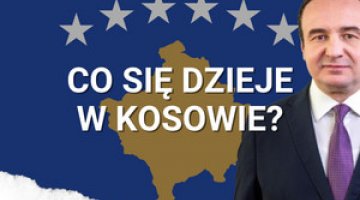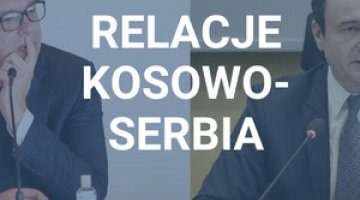The Serb community in Kosovo North is demonstrating its independence
On 14–15 February, the local government in the four communes located in northern Kosovo next to the border with Serbia held a referendum. These communes are densely populated by ethnic Serbs. More than 35,000 people authorised to vote were asked to answer the question “Do you accept institutions of the so-called Republic of Kosovo?”. The result of the referendum was a foregone conclusion since ethnic Serbs in Kosovo do not recognise Kosovo as an independent state. This area is beyond control of the government in Pristina, and local institutions (public administration, healthcare and education) are financed by the government in Belgrade. Pressure to cancel the referendum was applied not only by the government in Pristina and the international community, but also by the government in Belgrade and by ethnic Serbs living in other enclaves in Kosovo.
Tension grew significantly in northern Kosovo in July 2011, when the Kosovar government made attempts to take over control of the border checkpoints between Serbia and Kosovo. Albanian officers were deployed at these checkpoints with support from NATO (KFOR) and EU mission (EULEX) troops last September. This was taken by the Serb minority to be the introduction to a takeover of control in the northern territories of Kosovo as a whole. In response, ethnic Serbs built barricades on the main roads and thus blocked the traffic. Attempts to remove the barricades by KFOR troops over the past six months ended in clashes with the Serb population in which three people were killed and over one hundred were wounded.
-
The referendum was a manifestation of deepening frustration and distrust towards the government in Belgrade among Kosovo Serbs, who fear that it will withdraw from protecting their interests and financing local institutions under pressure from the European Union. EU member states, taking advantage of Serbia’s ambitions to join the EU, have forced Serbia to change its policy towards Kosovo: Belgrade started negotiations with Pristina and reduced its support for ethnic Serbs in Kosovo. However, since parliamentary elections have been scheduled for May this year, the government cannot withdraw completely from supporting, including financially, this community.
-
The referendum is aimed at demonstrating that the Serb community in northern Kosovo is united and can act as a political entity and also at questioning the thesis that its protests are not mass-scale and are only an effect of the activity of a small number of people linked to criminal groups. A favourable result in the referendum may strengthen the separatist tendencies among Serbs in Kosovo. This will be supported and used by the Serbian opposition in the electoral campaign.
-
Actions taken by the Kosovar government so far – which has preferred to resort to solutions of force – have caused the feeling of insecurity among Serbs in the north of the country to grow. The Kosovar opposition also has its share in this as it is opposing any concessions to the Serb minority and is questioning its constitutional rights. However, the government in Pristina at present has neither the funds nor organisational possibilities necessary to replace the institutions funded by Belgrade.
- Resolving the problem of northern Kosovo is becoming an increasingly urgent issue given the fact that the international community has announced that its ‘supervision’ of the independence of Kosovo will end in December this year. The continuation of the use of force towards the Serb minority is likely to cause an escalation of the conflict and to worsen the situation of Serbs in other regions of Kosovo. It seems that a more effective solution to this problem could be to start dialogue with moderate representatives of Serbs from the north of Kosovo and at the same time to apply pressure on the government in Pristina.




